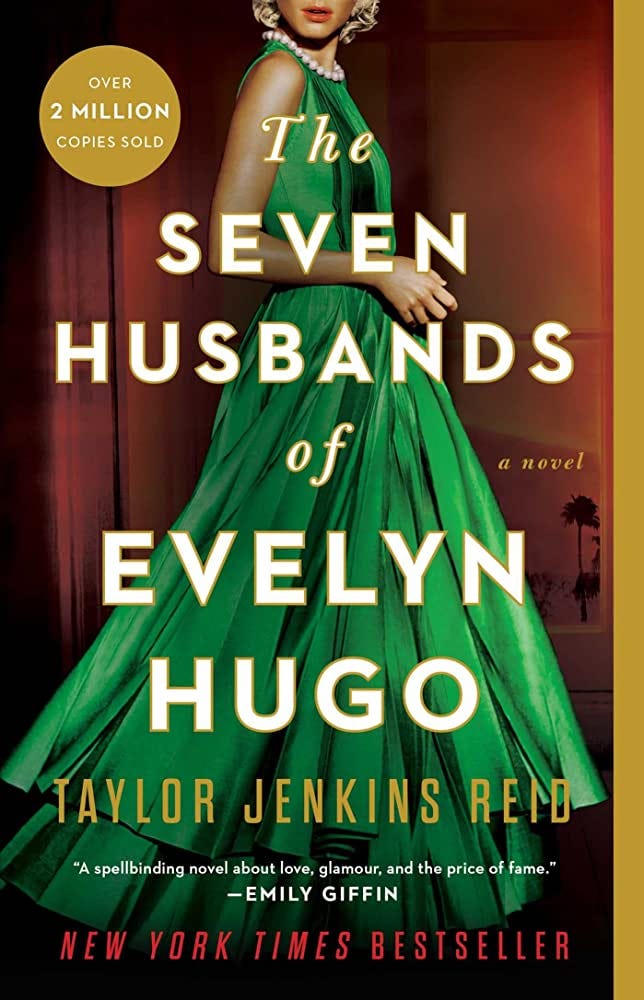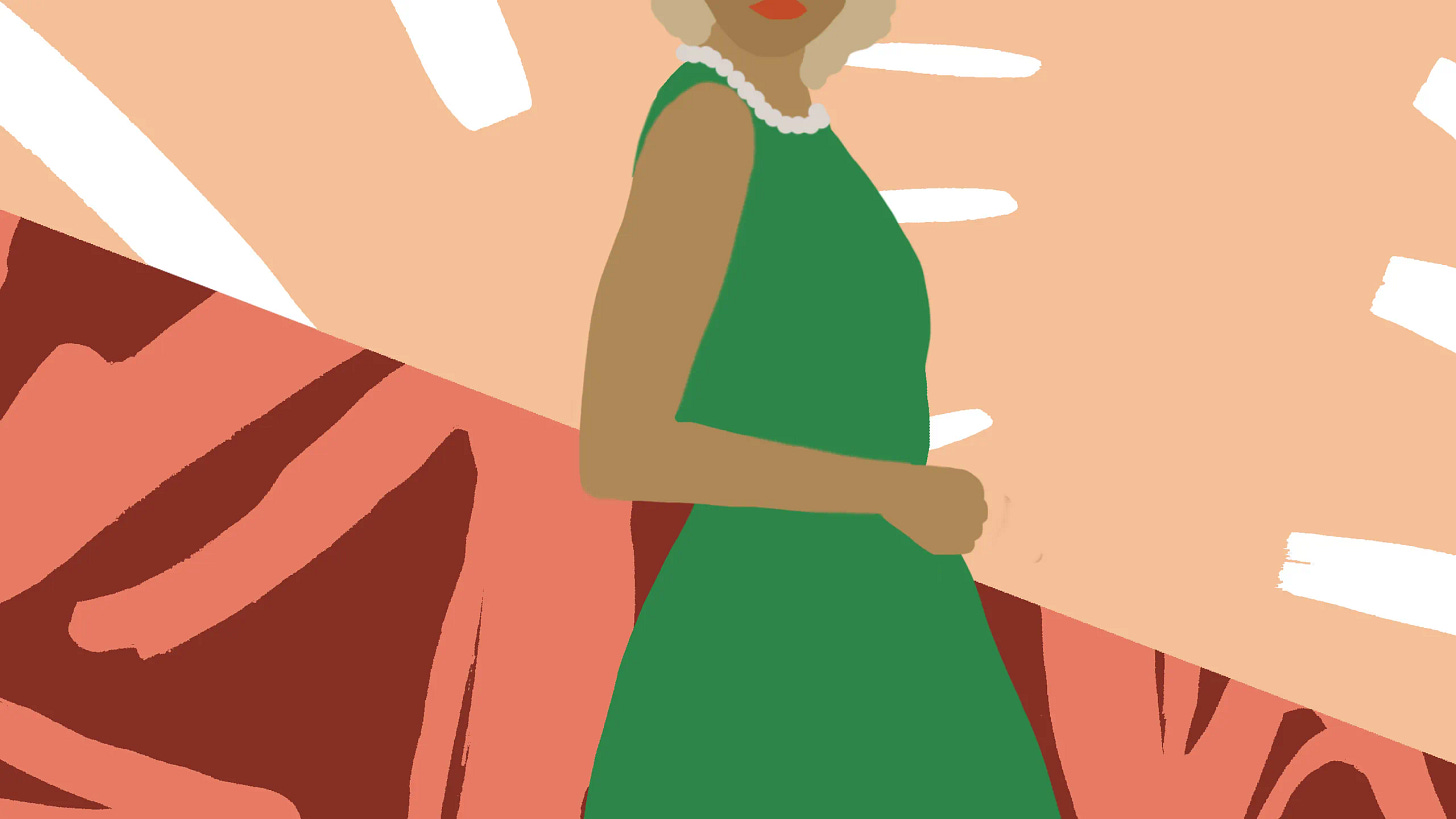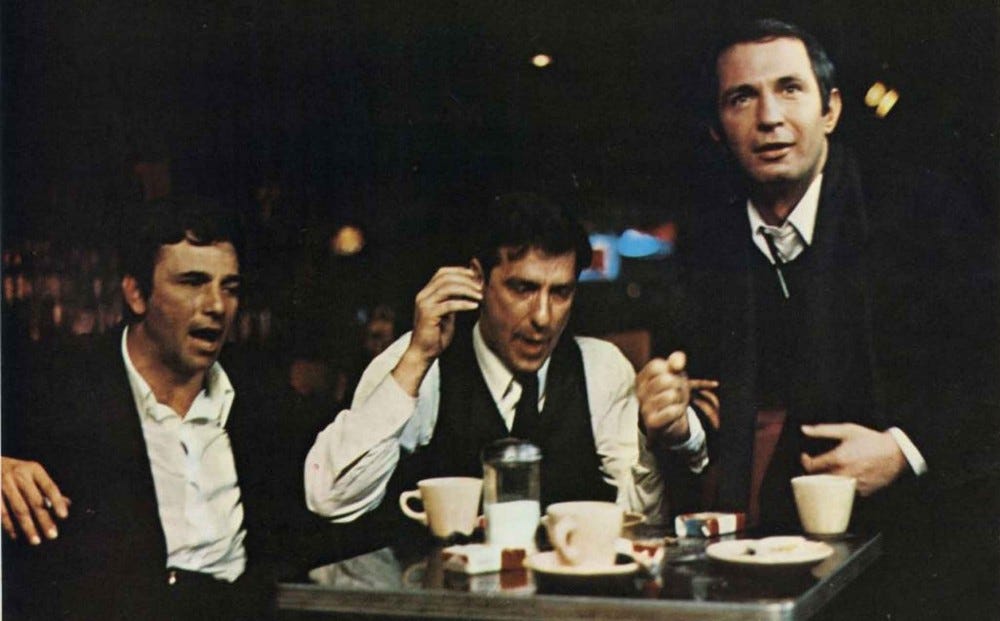
I absolutely binged this novel as an audiobook in 3 days. It was amazing. Two narratives twisting around each other in what you think is a beautiful braid, but is actually a sadistic ouroboros snake hellbent on destroying itself.
Evelyn Hugo is a delightfully complex character. She has history and layers and ulterior, selfish motives coloring everything that she does and all that she is.
Monique Grant, our narrator and so far rather unremarkable protagonist, sees herself in Evelyn, but without any of the intrigue or backbone.
Switching between the narratives was jarring, only in the sense that I did not want to leave whatever tale Evelyn was spinning for Monique’s less than exciting, mundane one.
We get the low down dirty ditty of why and how she married each of her husbands. Sometimes for love. Always with a motive. Not all of them kind, but some of them with a cruel understanding that she is a woman.
A strong, independent, viciously ambitious woman who allows them into her life, not the other way around.
Evelyn recounts her life to Monique, from her start in a poor neighborhood to the realization that she can and will be more. Her youthful, budding sexuality spearheading her move to LA and the realization that her body is a tool in Hollywood that allows her to get what she wants.
Very body and sex positive, this book is a tour de force of a woman reclaiming her body and utilizing all she has at her disposal to make something of herself. Alarming in the way she views marriages, charming in the way she presents herself, and disarming in her raw memories of the past, Evelyn Hugo jumps off the page and makes every other character pale in comparison to her vibrancy.
Reading about the brilliant Evelyn Hugo made me want to know someone in Hollywood like her: Queer, colored, and not afraid to finally show it.
The Husbands
I find it hilarious that the title of the book is “The Seven Husbands of Evelyn Hugo,” but that they are as much a footnote in this story as women are in the footnotes of history books.
Which is to say not much.
Evelyn herself acknowledges that her inability to simply date someone and have a casual relationship (and instead marries them) stemmed from her never having done so, while also reflecting how she always went full speed ahead in whatever she was doing.
The husbands are important in the sense of conflict being important to a narrative, because many of those she married were a means to an end, a stepping stone in her career that elevated her and gave her opportunities she would not have been afforded otherwise.
Which, out of context and in the grand scheme of life, is depressing in itself. The self-awareness of Evelyn to know that as a woman, and a woman of color no less, she has nothing to her name. If using her body and her charm was a way to rise up, then by god she was going to do that. Her self-sexualization is supremely validating in her recognition of the rigged game, yet absolutely fucked in the sense that she had to play it at all.
I can’t even blame her because the men she married were just as manipulative and coattail chasing as she was and used her beauty and clout to their advantage as well.
Her going through so many husbands is also pretty funny to me. Yes, they were fun times and useful times, but when you have that many names to remember, that many husbands to name, they become irrelevant.
Evelyn Hugo is what you remember. Not her husbands. She has remained in notoriety for having married seven different men, but no one remembers their names, not in the way she is fondly thought of. Yes it is because she is demonized for having that many marriages which is looked down upon especially since she is a woman, but also because she worked like no other and has a well-documented and stunning career in Hollywood.
Hate her or love her, she was working around the clock. In her professional and personal life.
The husbands provided conflict and a facade for the press during the 1960s-80s, but they pale in comparison to the actual romance of the story.
None were ever as important as the one and only Celia St. James.
Queer and Colored in Hollywood

Celia St. James was an actress in this novel that won Oscars and worked alongside Evelyn during their time in Hollywood.
She was also Evelyn’s true love, and her wife until her last days.
Their relationship previously hidden and multiple marriages used to cover up their love for one another— it is at times toxic, cruel, manipulative, exciting, loving, romantic, and everlasting. They have to navigate an uncaring and violent world, all while being publicly facing figures.
Reading their relationship during this time is a stark contrast to 2024 and the times we have now. Things are better than they were, but not as good as it could be and that is devastating.
To love in secret, to hide and sneak and feel unsafe because of where your heart leads you. Evelyn navigates this dynamic by marrying any number of men as a cover and having secret rendezvous (sometimes with the knowing consent of her husbands) with Celia.
Evelyn very clearly comes out as bi to Monique, which is the icing on top of her being a woman of color in a time that Hollywood was less than accepting. She had the cards stacked against her, but she didn’t let that stop her from succeeding.
In this pursuit of greatness, Evelyn does admit to dismissing her Hispanic identity and notes how foreign Spanish sounds on her tongue after lack of use and that reminds the audience that Evelyn is a woman of color, who had to turn her back on her culture to find success.
Which is a nice touch to admit that Evelyn is not the norm, nor is she representative of every experience that a bi woman of color would have. It may feel like a cop out, especially as Taylor Jenkins Reid is a white woman writing about a brown protagonist, but then that begs the question of who is allowed to write what and when do we blur the line between fiction and reality?
If we take Evelyn’s human existence, and that of a woman in a disadvantageous position, she espouses a universal experience. What does it mean to navigate this fictional space and demand authenticity from imaginary characters trying to be real people? How do we define that line?
I’m not bi, but as a woman of color, and one that is openly queer, I felt seen and acknowledged in a way I haven’t been before. It’s not a perfect 1:1 experience, and I don’t expect it to be, but the greater themes of striving for success, never feeling good enough, and hiding who you are can still resonate because these are all human emotions.
The End

The ending was beautiful. Ugh. Monique’s voice slowly blending into Evelyn’s. The way we know what Evelyn is going to do because of her referencing Monique’s previous written works. The twist that I should have seen coming but didn’t because I, like everyone else in Evelyn’s star-studded life, was enamored with the scandals in her life.
Like most good things in life, Evelyn’s story came to an end, but one well-deserved and as bullheaded as her. Evelyn was always a self-starter, focusing on what she wanted and how to get it, and her final days was spent doing much the same, exactly down to how she wanted to leave this world.
I wanted more. More of the story, more of Evelyn, more of Celia. This works because that’s just life. As she spins her life story out for Monique, risking all the details, hammering out every fact she found of import, we miss birthdays and Christmases and school recitals. We miss the dull bits because good storytelling demands we cut them out. It was necessary, but after hearing about the most important details of Evelyn Hugo’s life, I couldn’t help but want to know about every other minute detail of this character.
There’s no way you could convince me that this character isn’t real. In some alternate reality, there is an Evelyn Hugo and in that alternate reality, she gets her happy ending.
My favorite line from this book is the final line, her dismissal of her husbands and the admission of a forbidden love: “No … because they are just husbands. I am Evelyn Hugo. And anyways, I think once people know the truth, they will be much more interested in my wife.”
Because how could this badass, romantic woman not exist?
“No … because they are just husbands. I am Evelyn Hugo. And anyways, I think once people know the truth, they will be much more interested in my wife.”
[If you like this queer story, check out our other newsletters on Lycoris Recoil, Nimona, Suzume, They Both Die at the End, We Are Okay, Hades the Video Game, Everything Everywhere All At Once, Given, Little Witch Academia, Sk8 the Infinity, or Omoi no Kakera.]




